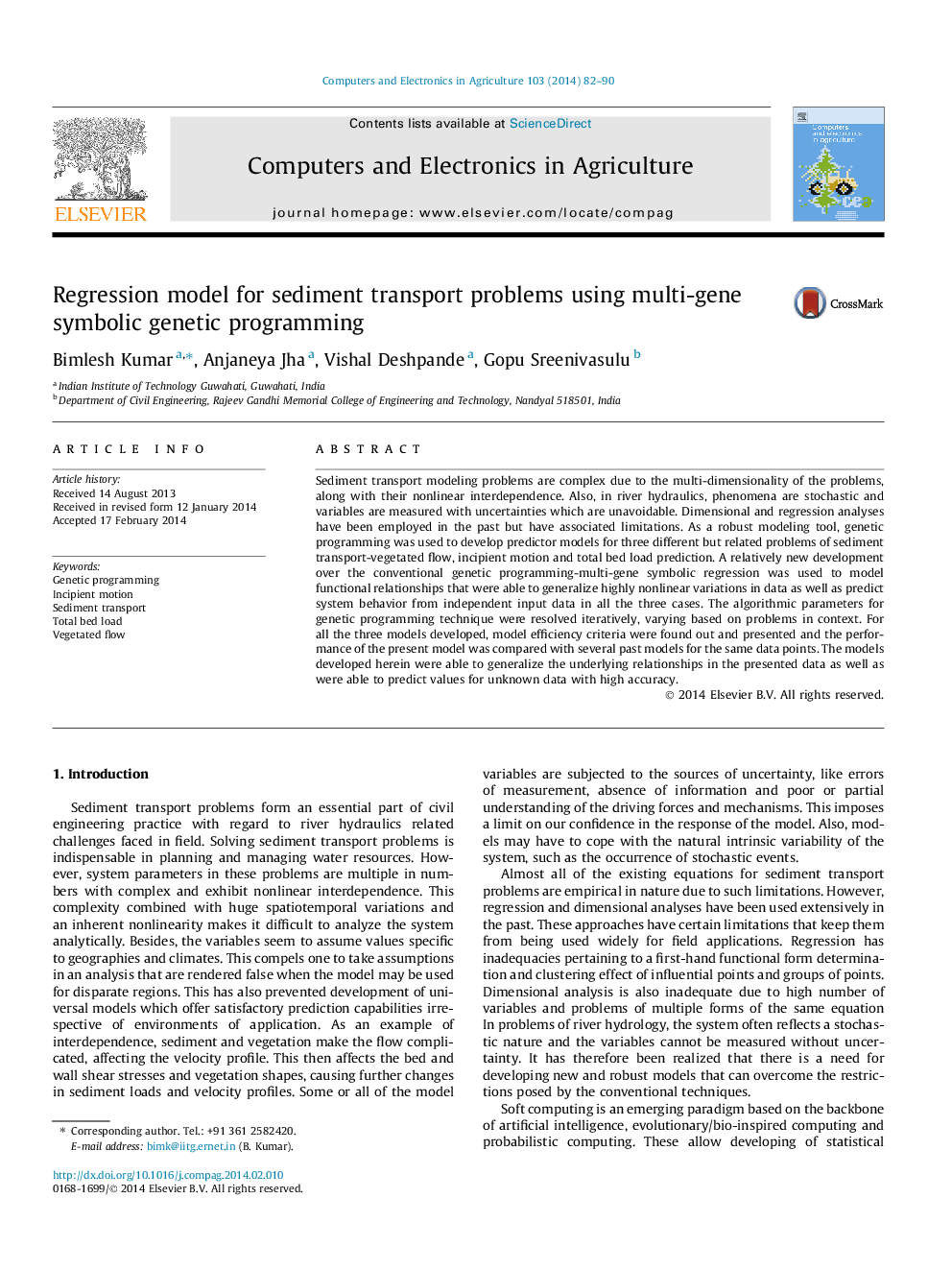| Article ID | Journal | Published Year | Pages | File Type |
|---|---|---|---|---|
| 84308 | Computers and Electronics in Agriculture | 2014 | 9 Pages |
•Develop regression models using multigene symbolic genetic programming.•Models have been tested on different efficiency criteria.•Good model performance was noted irrespective of dataset sizes.•Distribution fits are very close to each other for observed and predicted values.
Sediment transport modeling problems are complex due to the multi-dimensionality of the problems, along with their nonlinear interdependence. Also, in river hydraulics, phenomena are stochastic and variables are measured with uncertainties which are unavoidable. Dimensional and regression analyses have been employed in the past but have associated limitations. As a robust modeling tool, genetic programming was used to develop predictor models for three different but related problems of sediment transport-vegetated flow, incipient motion and total bed load prediction. A relatively new development over the conventional genetic programming-multi-gene symbolic regression was used to model functional relationships that were able to generalize highly nonlinear variations in data as well as predict system behavior from independent input data in all the three cases. The algorithmic parameters for genetic programming technique were resolved iteratively, varying based on problems in context. For all the three models developed, model efficiency criteria were found out and presented and the performance of the present model was compared with several past models for the same data points. The models developed herein were able to generalize the underlying relationships in the presented data as well as were able to predict values for unknown data with high accuracy.
